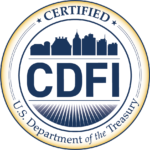What’s Next in Fraud
February 2024
As technology advances, you can expect fraud techniques to get more sophisticated. Today, fraud is a booming business, valued in the billions of dollars nationwide each year. What can you expect and, even more important, what can you do about it? Educating yourself is the best step, so read on for our insights and security tips.
Social Engineering
Despite the rise of technology, social engineering remains a top tactic fraudsters use. Social engineering is a term that describes the use of personal interactions where the scammer manipulates the victim in order to gain information. This can play out in countless ways.
Scam artists may call you and pose as a helpful support agent alerting you to a “problem” with a financial account or service subscription. The scammer lures you with urgent language or may even try to gain your sympathy. For example, they may say you have automatically made a large payment for a service. When you ask to cancel the service and receive a refund, the scammer “accidentally” refunds too much and requests that you log in to a financial account to arrange a transfer. During the transfer, the scammer withdraws as much money as possible.
It is all made possible through social interactions.
Account Takeover
Hackers work tirelessly to gain account login credentials for your data or identity. This trend will undoubtedly continue in the months and years ahead, though the technology used to accomplish it will continue to evolve.
Artificial intelligence technology is enabling scammers to automate account takeover attempts. It is also allowing scammers to obtain voice samples of potential victims, which can then be used to attempt to access accounts.
One-Time Password Scams
Some scammers use technology to log in to accounts, and when their attempt is unsuccessful, the financial institution sends you a one-time code. Meanwhile, the automation technology impersonates the same financial institution, contacting you to request that code. If you respond, the scammer can access your account.
How To Help Prevent Fraud
Never before has it been so important to use every security measure possible, and even this isn’t enough. Going into the future safely will require a layered approach to security:
- Multi-factor authentication is a must. Enable it for every account where it is offered. This technology requires multiple steps to authenticate your identity, making it much more difficult for scammers to access your accounts.
- Use strong and unique passwords. This means using a combination of letters, numbers, and special characters to form a passphrase no one else can guess. Each account passphrase should be unique because scam artists can use the technology to scour the internet for accounts with your credentials. If you use the same credentials for every account, the criminals can access all of them.
- Be very skeptical of every communication you receive. Scam artists are very talented and good at what they do so that they can be compelling, and anyone can fall victim. Always contact the organization directly using the information you can verify independently. Never use the email address, website link, or phone number provided by the potential scam artist – and never give someone contacting you your personal or account information.
- Don’t respond. It only takes about 10 seconds for a scam artist to capture enough of your voice to use it for a sample. The website links may also contain malicious software that will infect your device.
- Practice safety with purchases. Often, the safest way to pay is with your credit card. You can dispute fraudulent transactions. Making secure purchases also means buying only from reputable retailers. Be wary of online retailers that pop up overnight, especially during busy promotional times like the holiday season.
- Practice safe web browsing by regularly updating your browser software, choose a well-known and trusted browser with advanced privacy and security, block pop-ups and choose secure HTTPS sites over unsecured HTTP sites.
Fraud is constantly evolving, so at UCU, we are always on the watch for the latest fraud trends and tips to help you stay safe. Learn more and stay updated on the newest fraud advice and alerts at our online Security Center.




